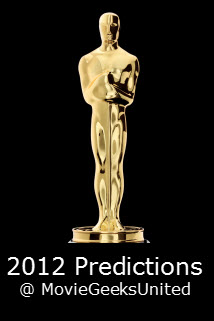The Dark Knight Rises (2012)


Content by Tony Macklin. Originally published on July 18, 2012 @ tonymacklin.net.
The Dark Knight Rises is a brawl of a movie.
In IMAX, it's a magnificent brawl of a movie. At times it careens into unwieldy mayhem, but at other, crucial times, it's brilliantly thrilling.
The Dark Knight Rises is a Tale of Two Cities - Hollywood and Gotham.
It was obvious that in this age which overemphasizes special effects, The Dark Knight Rises was going to be a battle royal between special effects, stunts, and character.
It may be a split decision, but character prevails. The actors hold their own valiantly.
Christian Bale is back as Bruce Wayne/Batman, but this time his Batman is damaged goods - and badly damaged goodness. Alfred (Michael Caine) tells Bruce Wayne, "You have a practiced apathy, Mr. Wayne."
As Bruce tries to come back to be the Batman of the past, he is pummeled, slammed, beaten, and violated. This time he seems to be an overwhelming underdog to the villain.
Batman isn't the Caped Crusader anymore; this time his encasing Batsuit seems like a would-be fortress under duress or a potential tomb.
Executive Lucius Fox (Morgan Freeman), and Alfred (Michael Caine) are back, but they're more onlookers these days.
The film's moral center is Commissioner Gordon (Gary Oldman) who is dedicated to keeping his city alive and good.
Gordon begins the film conflicted. It's the eight-year anniversary of Harvey Dent's death, and Gordon is attending a ceremony to honor Dent. He plans to tell the audience the truth about Dent's evil and Batman's heroism that saved his son. But he puts the statement back in his pocket, and the lie that Dent was a hero and Batman was an evil murderer continues.
When his city comes under brutal attack, Gordon does his best to save it. For the rest of the film, Gordon heroically tries to serve good.
What is especially admirable about The Dark Knight Rises is its vital humanity and the impressive cast that embodies and promotes it.
Two actors who beautifully portray new characters in director Nolan's trilogy are Anne Hathaway and Joseph Gordon-Levitt.
Hathaway, as Selina Kyle/Catwoman, makes her character a delightful mixture of self-absorption and independent guile.
And Joseph Gordon-Levitt, as idealistic John Blake - a young police officer who was an orphan-, is a talented actor who has regained his potent authenticity, which seemed to have waned. Welcome back, JG-L.
Marion Cotillard is pregnant with power as Miranda Tate, a key character.
Many of the supporting characters have a human dimension, especially Tom Conti, as a friend to Bruce Wayne when he is imprisoned. Conti has been a leading man of memorable ability, especially in Reuben, Reuben (1983). He contributes artfully to the film's humanity.
Tom Hardy is not so much a character, as he is a force. Hardy portrays the hellish, massive, muscular villain Bane. He is masked, vicious terrorism, and as such seems particularly contemporary.
Bane was exiled from the League of Shadows, a group dedicated to "balance."
Director and co-writer Christopher Nolan and his co-writer brother Jonathan keep us off balance. [David S. Goyer is given a story credit.] Quirks and surprises abound.
The script has depth and has piquant literary allusions. The Nolans quote from Charles Dickens' A Tale of Two Cities, and The Dark Knight Rises reminds us of a city - a country? - splitting apart.
Purists may find The Dark Knight Rises off-putting, but the Nolan Brothers know what they're doing.
Hans Zimmer's musical score is evocative and powerful.
The best quality of The Dark Knight Rises is that it shows that "blockbusters" do not have to surrender to a bombardment of special effects. They can keep intelligence and humanity.
The box office and the brain can coexist.
Because of that monumental lesson, The Dark Knight Rises could become an important classic.






